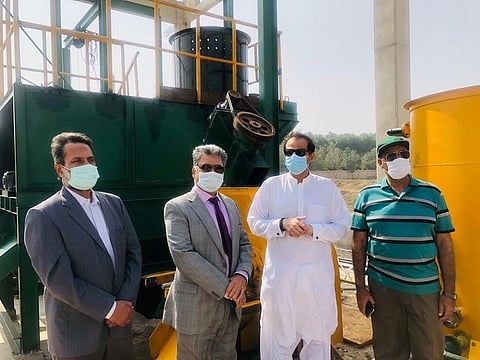Sindh government says no new industrial units without effluent treatment plant
Decision reached at meeting chaired by Sindh Law and Environment Adviser Barrister Wahab

Karachi: The Sindh Government has made it compulsory for every new industry being established in the province to set up its own effluent treatment plant.
The decision to this effect was reached at a meeting chaired by Sindh Law and Environment Adviser Barrister Murtaza Wahab to review the progress on implementing the environmental laws and regulations in the province.
Sindh Environment adviser said on the occasion that there was no reason to establish any new factory in the province whose operations caused irreparable damage to the environment.
He said the process of industrialisation should accelerate the process of sustainable development as for the purpose the environmental laws should be strictly followed.
He directed the director-general of Sindh Environmental Protection Agency (SEPA) to devise guiding principles to treat the industrial waste water so that industries should adopt these rules without any slackness.
He said the Sindh government would extend maximum help to the industrial and construction sectors in the province in view of their role to further the process of national development in a sustainable manner.
Solar power
Sindh Environment adviser Barrister Murtaza Wahab also suggested that the tanneries in the Korangi industrial area of Karachi should switch to the mode of solar power for operating their combined effluent treatment plant (CETP) to bring down the cost of treating the waste water of the industry.
Sindh Environment adviser gave suggestion to this effect while holding a separate meeting with the office-bearers of Pakistan Tanneries Association (PTA).
He said that using solar power to run the CETP would be helpful in bringing down the production cost of the Pakistani leather products to increase their competitiveness in the international market.
He said that there was also the need to enhance the capacity of the CETP in order to slash the cost being incurred by the tanneries to adopt necessary environmental mitigation measures.
He asked the office-bearers of the PTA to complain to the SEPA if any of their member industry didn’t use the CETP as instead its waste water was directly discharged into the water body without any treatment.
He said that due lawful action would be taken against any such errant industry.
Sign up for the Daily Briefing
Get the latest news and updates straight to your inbox







